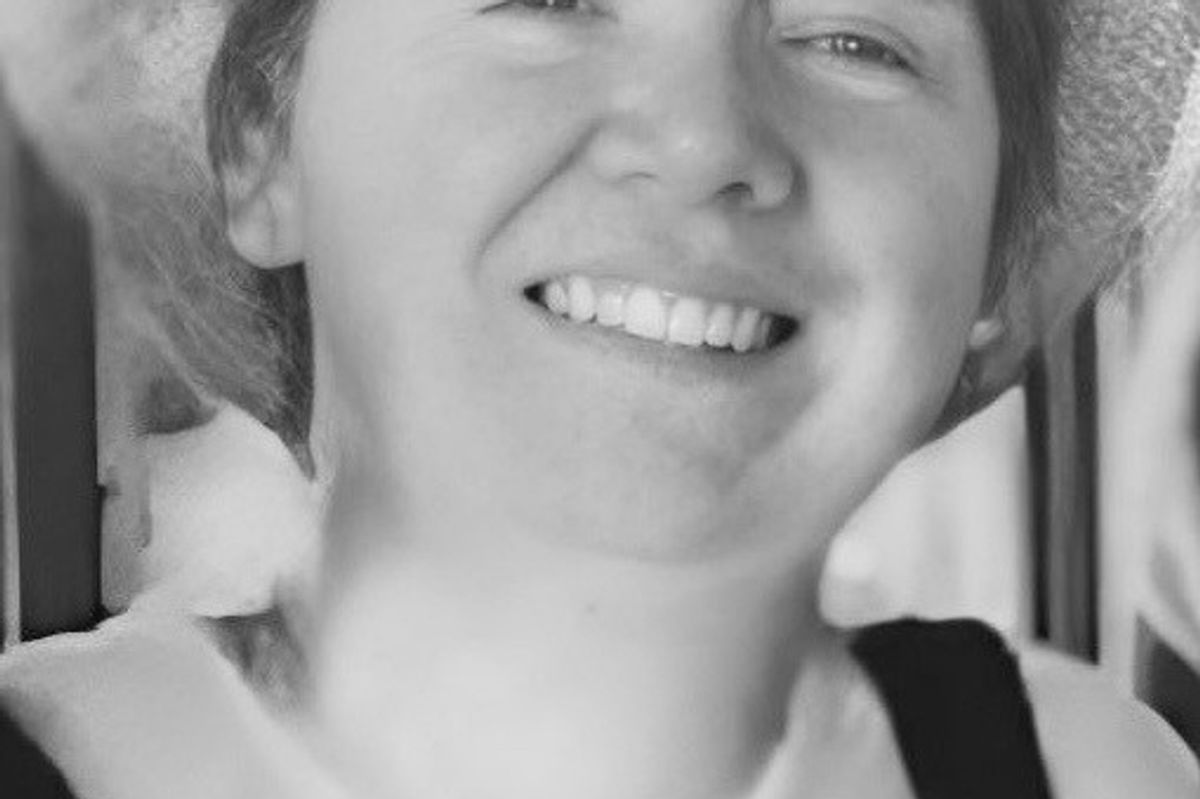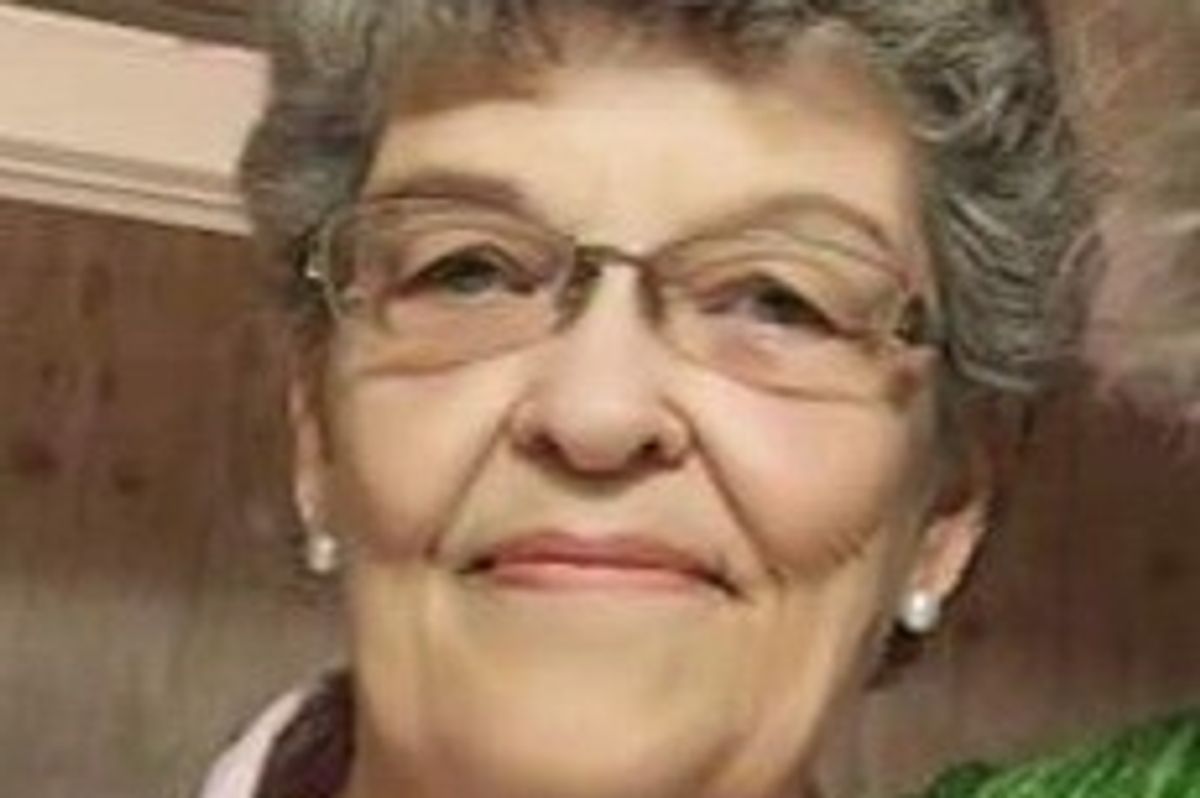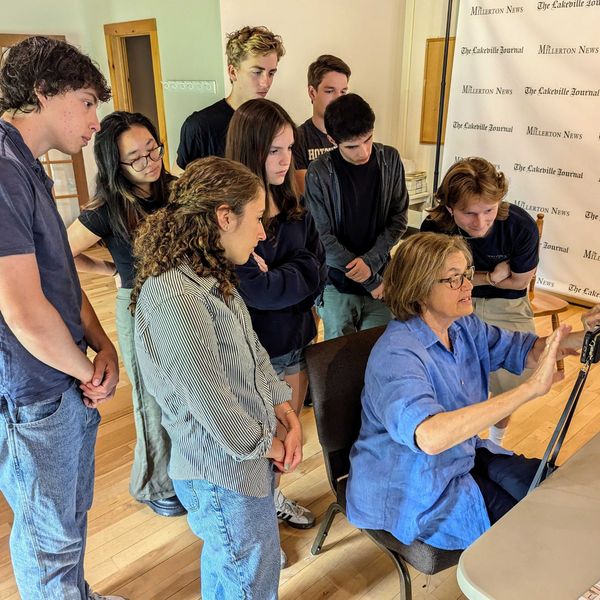Latest News
Peggy Ann McEnroe
Aug 13, 2025
AMENIA — Peggy Ann McEnroe, 60, a lifelong area resident, passed away surrounded by her family on Aug. 4, 2025, at Vassar Brothers Hospital in Poughkeepsie, New York.Peggy Ann was the owner and operator of Peggy’s Sweet & Savory café in Amenia, New York (formerly known as Back in the Kitchen).
Peggy had a passion for food and travel and her creativity and generosity knew no bounds. Born on Dec. 10, 1964, in Sharon, Connecticut, she was the daughter of the late William Thomas McEnroe and Caroline Ann McEnroe.She was a graduate of Our Lady of Lourdes High School and received her Bachelor of Arts degree from SUNY Purchase.
Peggy is survived by her sister, Colleen McEnroe (Philip (Pete) Evans) of Bethesda, Maryland; her brothers, W. Patrick McEnroe (Lisa Roberts-McEnroe) of Rhinebeck, New York, and Kieran McEnroe of Amenia, New York. She is also survived by nieces, Sarah (Sally) Evans, Ryan McEnroe, Christy McEnroe, Kerry McEnroe, Katerin McEnroe, and nephews, Philip Evans (fiancé Rebecca Krysiak) and Carlin McEnroe, and her maternal aunt, Agnes Redmond of Smithtown, New York, as well as many cousins.
In addition to her parents, she was predeceased by a nephew, Gavin McEnroe.
A Mass of Christian Burial will be celebrated at 10 a.m. on Friday, Aug. 22, 2025, at Immaculate Conception Church, 4 Lavelle Rd., Amenia, New York, with Rev. Andrew O’Connor officiating.Burial will follow at Immaculate Conception Cemetery in Amenia, New York.In lieu of flowers, memorial contributions may be made to The Little Guild (animal shelter), 285 Sharon Goshen Turnpike, West Cornwall, CT06796 (or online at https://www.littleguild.org) or Immaculate Conception Church, 4 Lavelle Rd., Amenia, NY12501.
To send the family an online condolence, please visit www.hufcutfuneralhome.com.
Keep ReadingShow less
Evelyn Ann Moody Lamberti
Aug 13, 2025
WASSAIC — Evelyn Ann Moody Lamberti, 87, passed away July 13, 2025, in Barre, Vermont.
Born on Dec. 13, 1937, in Hartford, Connecticut to Hazen and Helen Moody, she spent her early years in Wassaic, New York and graduated from the first graduating class of Webutuck Central High School in 1955. She attended New Paltz College and then worked for the Dutchess County Supervisors Office in Poughkeepsie, New York.She married David Lamberti on Oct. 10, 1959, in Wassaic and moved to Vermont.
She began her career at the Vermont State Liquor Board and remained with them loyally for eleven years. In addition to her job, she also contributed to the success of her husband’s monument drafting studio. Her most important role in life was being a mother to her three children.
She was a woman with humble tastes and found contentment doing everyday tasks and providing a welcoming home for friends and family. With a love of the English language, her passions included word puzzles and learning on the computer. Her selfless and kind demeanor made the Lamberti house in Williamstown, Vermont, a center for family. Her memory lives on in the heart and minds of everyone who was fortunate enough to cross paths with her.
She is survived by her husband, David, and three children; Lisa Hard of Enfield, New Hampshire, David Lamberti and his wife, Joy, of St. George, Vermont, and Rhonda Warren and her husband, Don, of Clifton Park, New York. In addition to her husband and children, she is also survived by her granddaughter, Brittany Hard, sister Susan Metcalfe and husband John T. Metcalfe, and sister-in-law Caroline Tucker-Stook, as well as her nieces and nephews.
On Sunday, July 27, 2025, therewas a gathering of close friends and family at the Barre Elks Club in Barre.
In lieu of flowers, please send memorial contributions to the Central Vermont Humane Society, 1589 VT-14S, East Montpelier, VT05651.
Keep ReadingShow less
Caroline (Lynn) P. Chase
Aug 13, 2025
SOUTHFIELD, Mass — Lynn Chase of Southfield, Massachusetts, passed away on July 30, 2025, at Berkshire Medical Center after a courageous seven-month battle with an aggressive cancer. Despite the challenges, Lynn continued to inspire those around her with her strength and determination.
How do you begin to talk about the extraordinary life of Lynn Chase?
A native New Yorker, Lynn Chase graduated from Bennett College and completed her studies at the New York School of Interior Design. Lynn was a lover of animals from birth, and had a habit of rescuing any animal in need, from birds to squirrels, sneaking them into her room and nursing them back to health. This deep connection with nature was a driving force in her life and work.
In the 1970s, Lynn traveled extensively through Africa and South America, and it was there she found the inspiration that shaped the rest of her life. Those travels led to her spectacular body of work — paintings and sketches, porcelain dinnerware collections and giftware, and home furnishing designs unlike anything else, which she brought to the world first for Lenox china, and then under the name Lynn Chase Designs LCD, which she launched in 1988.
Lynn’s collections celebrated jaguars, monkeys, tigers, parrots, sea life, and many more, becoming not just beautiful objects, but statements of her deep fascination with wildlife. Lynn Chase’s Jaguar Jungle design won Best Pattern and the Impact Award at the International Tabletop Association in 1991 despite being told that no one would “eat off animals, or black plates.”Her stunning Harmony Bowl paid homage to wildlife species of the land, sea, and air from the seven continents, and was one of her favorite designs.
Her following was large and loyal. People from all over the world collected her work. Her friends often shared stories of being at a dinner party and finding her designs on the table. It was striking that people hadn’t just bought her tableware because it was beautiful; they bought it because it spoke to them personally.
Lynn’s love of wildlife went far beyond her art. She founded the Lynn Chase Wildlife Foundation, an independent nonprofit dedicated to preserving endangered animals around the globe. The fund has contributed much-needed funds to the Cheetah Conservation Fund in Namibia and the Amboseli Trust for Elephants in Kenya (where she also served on its board), among others.
She was a woman of great integrity, of immense talent, and of a generosity that matched her passions. Lynn touched so many lives, and while her loss is felt deeply, her work, her vision, and her compassion will live on in the hearts of everyone who knew her—and in the homes of people around the world who still set their tables with her creations.
Lynn Chase was predeceased by her father, Paul Jerome Chase, and her mother, Mary (Jennings) Chase of New York. On May 2, 1998, Lynn married Richard (Dick) A. Flintoft in New York, and together they enjoyed a full and happy life in New York City and Southfield, Massachusetts, until he died in 2020.
Surviving Lynn are her sister Susan (Edward “Ned”) Culver of Wayland, Massachusetts and Charleston, South Carolina, and brother Brewster (Marilyn) Jennings Chase of Ithaca, New York; her nieces Jennings Lee Camerson (Charleston, South Carolina) and Anne (Dawson) Culver Bird (Norfolk, Virginia); her special stepsons Philip Grant (Jennie) Flintoft of Millerton, New York, and Peter (Yuliya) Flintoft of New York, New York.
Lynn leaves countless beloved friends in the Massachusetts Berkshires, Connecticut, New York, throughout the U.S., and around the world, all of whom she loved and who love her. Our lives will never be the same without her.
Finally, Lynn was grateful to her outstanding doctors and medical providers at Hartford HealthCare Cancer Institute at Charlotte Hungerford Hospital.
A Celebration of Life for Lynn is being planned for this autumn.
Keep ReadingShow less
Kim Roberta Andrews
Aug 13, 2025
SHARON — Kim Roberta Andrews, aged 70, of Sharon, Connecticut, passed away unexpectedly on Aug. 5, 2025, at her home in Sharon.
Kim was born on Feb. 19, 1955, to Robert and Thelma Andrews in Huntington, New York.
She had a loving and happy upbringing alongside her brother, Kevin.Kim loved boating with her father, horseback riding and lived a happy childhood. She met the love of her life in 1982, William Marshall.They relocated to Connecticut in 1986.
Kim and Bill were the caretakers of the Holly House Museum for many years until Bill’s passing in 2007.
Eventually Kim moved to Sharon where she has resided for over ten years.
Kim loved her garden, feeding the hummingbirds, reading and painting.
She is survived by her brother, Kevin, and sister-in-law, Anne, her nephew, Christoper and wife, Amanda, niece Amanda and husband, Daniel, and nephew, Justin.
She loved the stars, astrology and sci-fi movies.She loved the holidays, loved the fall season, the Christmas holidays and above all Christmas music.
She loved to laugh.Kim is now at peace with her life partner, Bill. The stars and heavens just became brighter.
She will be missed. This obituary was lovingly composed by her beloved family.
A graveside service and burial took place on Aug. 8, 2025, at 11 a.m. at Salisbury Cemetery, Undermountain Road, Salisbury, CT. Pastor Jan Brooks officiated. Arrangements were entrusted to the Scott D. Conklin Funeral Home, 37 Park Avenue, Millerton, NY 12546. To send an online condolence to the family, plant a tree in Kim’s memory, please visit www.conklinfuneralhome.com
Keep ReadingShow less
loading







